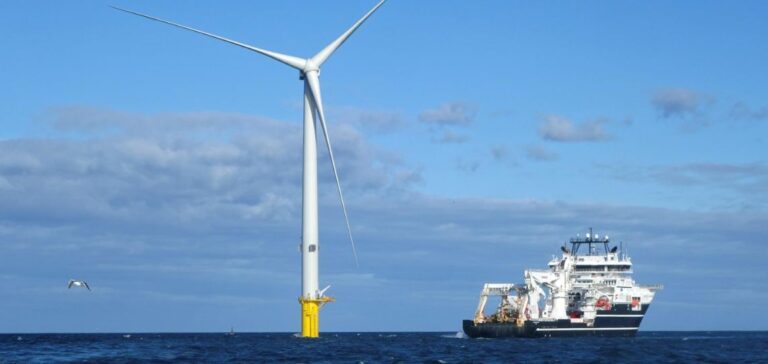Industry experts are calling for major investment in offshore energy to meet the UK’s climate targets.
UK energy lobby calls for massive funds for carbon neutrality by 2050
The industry association points out that “the global race to invest in energy is gathering pace”, citing massive US subsidies for “green” infrastructure, as well as “ambitious plans in Asia and the European Union”. She is therefore also calling on London to boost public subsidies: “the UK must not be left behind”, she says, arguing that the country suffers from “under-investment in home-grown energy”.
Green energy in the UK: lagging behind its international competitors
Russia’s invasion of Ukraine has caused inflation, raised energy costs and jeopardized global energy security.
David Whitehouse, Chief Executive of OEUK, notes that the UK has positioned itself as “one of the world’s leading countries for offshore wind, with over 90 gigawatts of capacity, but only a third is approved or operational”. “We need to simplify regulatory approval procedures” for projects, he insists.
The Energy UK study warns that the UK, once the leader in offshore wind power, is in danger of being overtaken in green electricity production.
The study attributes this slowdown to a lack of investment, particularly in the United States, which a year ago passed the “Inflation Reduction Act”, promising $370 billion to be injected into the energy transition, while the European Union has stepped up its own tax reduction measures for investment in zero-carbon technologies.
On Tuesday, London also announced the relaxation of rules governing the siting of onshore wind turbines. The rules governing the siting of onshore wind turbines were denounced as a de facto ban on new installations.
Why does it matter?
Massive investment in renewables and offshore energy is essential if the UK is to meet its carbon neutrality targets. However, the country needs to overcome current under-investment to remain competitive in the global race for energy transition.






















